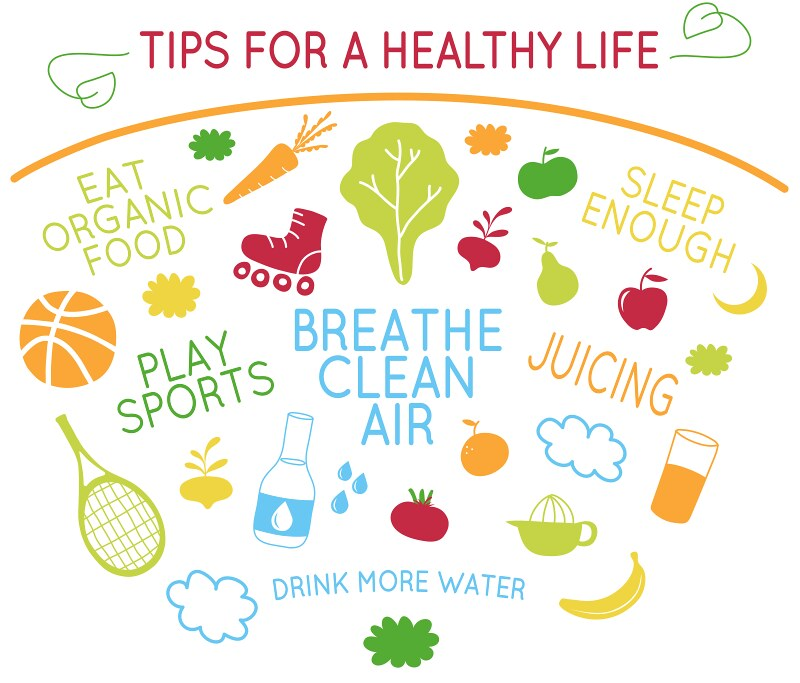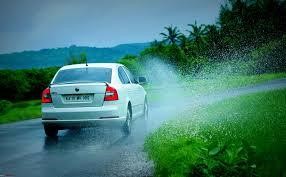General Insurance Blogs, Articles & Updates by - Magma HDI
Have us call you
- RENEW YOUR POLICY
- BUY NEW POLICY

6 Ways to Reduce Risk of Contracting COVID-19 While Commuting to Work
The end of 2019 had brought forward a deadly virus that is still haunting the world, the COVID-19. Since we are still lagging in getting a proper vaccine for this virus, the situation is causing more and more adverse effects, even fatality.
In the case of treatment of COVID-19, best health insurance in India covers pre and post hospitalization expenses, including in-patient and out-patient expenses. Yet it is best if we could prevent it from the first occurrence just keeping ourselves well protected.
COVID-19 might have paused our regular daily routine for a few days, but we are getting back on track with our professional commitments. In such cases, getting proper protection has become inevitable to keep ourselves safe.
So here are 6 ways to reduce the risk of contracting COVID-19 while commuting to work:
1. Using Personal Protective Equipment (PPE)
Whenever you step out of our house, you must gear up with proper personal protective equipment, like masks and a pair of gloves. This protects us from getting in direct contact with the virus by shielding our most prone parts of our body, like hands and mouth.
You should also carry an extra pair of disposable gloves and mask for an emergency. Try not to open PPE at all while you are outside. It would be best if you washed the mask properly in case it is reusable. This ensures our safety.
2. Using Sanitizer
The use of sanitizer is one of the essential precautionary measures. It would be best if you always carried a sanitizer while going out and use it whenever you contact any other substance or any other person. Sanitizers kill the virus before it starts harming our body. It is better to use sanitizer just before and after a meal is a must.
3. Eating Safe
Eating unpacked, and street food increases the chance of coming in contact with the virus. So, it is safe to either carry your food or any packed items. Food prepared in the house must be washed well before cooking.
You should only purchase foods from outlets that follow the proper protocols of WHO. Some of the best insurances of India encourage its policyholder to eat safe and eat healthily.
4. Maintaining Social Distance
Whenever you travel, you must maintain social distance. Keeping a safe distance from other persons reduces the chance of getting in direct contact with the virus. It would be best if you avoided public transports that are too crowded. Instead, travelling in private vehicles minimizes the chance of infection.
It would be best if you also kept a decent distance from people who are continually sneezing or coughing. Crowded places are always the den for spreading the virus. The Best Health Insurance In India insists its policyholders on maintaining social distancing.
5. Avoiding Any Physical Contact
Public places are prone to contamination by the virus. Please do not touch any unmanned items, walls or railings as that can increase the chance of coming in contact with the virus. So, before you get in contact with such places, it is a must first to disinfect the surface properly.
6. Spread Awareness
While travelling, if you find a person without wearing a mask, make him/her aware of the same. We must stand in a safe distance and insist others to maintain distance too. Being a responsible citizen, you must always spread awareness about the current situation. Not wearing a mask outdoors might result in legal charges and consequences.
Summing up
While travelling to your workplaces, you must always maintain the above steps. These will keep you away from coming in direct contact with the virus. Social distancing, using personal protective equipment and sanitizers are some of the crucial things you should practice regularly.The best health insurances in India always promotes all of the above steps for the betterment of their customers.

15 Simple Health Tips For Monsoon!
The monsoon is a welcome change for many from the scorching summer heat. It brings promises of new life with itself. Thus humans often greet this season with open arms.
But sadly the bacteria and viruses enjoy this season as well. So we need to keep an eye on our health and take the necessary precautions to stay safe. But with the growing number of diseases due to various viruses in this period, one should also consider health insurance plans in India to keep their family protected.
Here are a few simple health tips for the monsoon that every person must take up to stay fit and healthy.
1. Increased intake of Vitamin C as it fights against any deadly virus:
- Monsoon is the time where viruses and bacteria thrive the most.
- A rich vitamin C diet, including oranges and green vegetables, can help increase the immunity against such diseases.
2. Avoiding junk food:
- The streets are filled with puddles and potholes. These are home to a vast number of microorganisms.
- Street foods, which are sold openly on the streets, are often exposed to these harmful microorganisms.
3. Not storing stagnant water:
- Mosquitoes are born in stagnant water. They are carriers of a vast number of diseases.
- One must also ensure that drains are not clogged, and rainwater is not stored in any part of the house.
4. Adding disinfectants in bathwater:
- Most people like to walk in the rain. But bathing at least twice a day can do away with any health problems.
- Use of disinfectants in the water can protect from the various microorganisms and keep one fit.
5. Using ironed clothes:
- Clothes stored in wardrobes often get cool with the damp from rain and lack of sunlight. Wet moisture causes molds
- Ironing the clothes before wearing makes them free from these fungi besides giving a stylish look.
6. Having well-cooked vegetables and fruits:
- Fruits and vegetables skins are home to several germs.
- They need to be adequately washed in running water before cooking them to stay safe from water-borne diseases.
7. Enough sleep and exercise:
- 7-8 hours of sleep is mandatory for an individual to create immunity and prevent various diseases.
- Regular exercise can keep the body in perfect shape and build immunity against various diseases.
8. Avoiding touching the eye:
- Eye infections like conjunctivitis, dry eyes and corneal ulcers are common during these times.
- In case of any irritations, doctors should be consulted. There are some health insurance plans in India which can cover the cost if required.
9. Maintaining hand hygiene:
- Washing or sanitizing hands properly before having food is a must. It kills all the germs.
10. Precautions against mosquitoes:
- In-home, mosquito coils or tents should be used to stay safe from mosquitoes.
- Several health insurance plans in India now deal with diseases caused due to mosquitoes. Hence these should be considered.
11. Clipping nails:
- Bacteria and germs often accumulate underneath nails. So they should be clipped at regular intervals.
12. Protection against allergens:
- Allergies can become severe during this season.
- Wearing masks while going out and carrying anti-allergy medicines are a must.
13. Not using wet shoes:
- One should not be wearing wet socks and shoes as pathogens may grow.
- Keeping an extra pair of shoes might be beneficial.
14. Staying clear of damp indoors:
- Damp walls are home to the growth of fungi.
- People having asthma or breathing problems should stay away.
15. Keeping distance from sick people:
- Many people catch the flu or cold during this time. So it's better to keep a distance from them.
The monsoon usually lifts the spirits of many but often makes the health vulnerable. With some essential precautions, one can stay fit. One can even take the help of Health Insurance Plans In India so that even when you fall ill, you can deal with the situation effectively.

Family Health Insurance or Individual Health Plans – What to Choose?
Establishing life goals entail insurance plans, but that’s not a holistic confirmation to your investments. The next question would be - whether to settle for an individual or a family floater plan.
Insurers provide these variant coverages for their health insurance services. But what are the key differences? What should you choose? What are the benefits? All of which will be answered in the following paragraphs.
Know the difference
The literal meaning automates a difference which understandably leads you to think of the package claims.
- Individual health insurance is issued against a single person. So, if you were to propose insurance coverage for your entire family, you’d have to buy insurance respectively for each member. That’d provide an allotted sum dedicated to each individual under the insurance policy.
- But if you are looking into family insurance, all the members will be covered under one single insurance package. Unlike the former variant, family insurance has an allotment dedicated to the entire family, which is to be shared. So, if your family has two other members with an insured sum of 4 lacs INR, the cluster would be sharing the same amount. Thus, a health insurance policy for the family will only dispatch the stipulated amount irrespective of the individual requiring healthcare assistance.
How does it work?
A family insurance plan relies on the hypothesis or rather, the possibility of all members requiring medical assistance at the same time. So, if a family of three buys an individual plan of 3 lakhs for each member, a family floater plan of 8 lakhs can equally justify the needs.
How are the premiums determined?
The premium for family health insurance is determined based on the age of the oldest member. However, for individual plans, the only determining factor is the age of the member insured. The family plans tilt towards your affordability, especially for younger families. But if the oldest member suffers from a terminal or any immediate ailments, individual plans are recommended.
Comparative Analysis of Family vs Individual Health Insurance
- Individual health insurance is issued against a single person. So, if you were to propose insurance coverage for your entire family, you’d have to buy insurance respectively for each member. That’d provide an allotted sum dedicated to each individual under the insurance policy.
- But if you are looking into family insurance, all the members will be covered under one single insurance package. Unlike the former variant, family insurance has an allotment dedicated to the entire family, which is to be shared. So, if your family has two other members with an insured sum of 4 lacs INR, the cluster would be sharing the same amount. Thus, a health insurance policy for the family will only dispatch the stipulated amount irrespective of the individual requiring healthcare assistance.
- But if you are looking into family insurance, all the members will be covered under one single insurance package. Unlike the former variant, family insurance has an allotment dedicated to the entire family, which is to be shared. So, if your family has two other members with an insured sum of 4 lacs INR, the cluster would be sharing the same amount. Thus, a health insurance policy for the family will only dispatch the stipulated amount irrespective of the individual requiring healthcare assistance.
- Family insurance plans offer age-restricted renewals. So, if the oldest member were to breach the maximum threshold, the presiding members won’t be able to forward any amount prescribed by the policy.
- If a child migrates to an individual plan, eventually, the credit for their waiting period is lost.
- For a family plan, any member issuing a claim can nullify the No Claim Bonus or NCB for that fiscal year.
- Generally, kids and immediate dependents are covered in a family plan. But for cases where you’d want to include your in-laws or grandparents, individual plans remain their only plausible option.
Verdict
This is more of a strategy than a choice since you can opt a heterogenous plan, here’s what you can do:
- If your family consists of younger members,Family Health Insurance Policy will fare better for apparent reasons until the members cross their age threshold for the policy.
- For families without any history of chronic illnesses, the family plan suits them best. Moreover, they remain under a certain price bracket that provides financial convenience.
- But if you are someone at a higher risk of any significant illness, subscribe to individual insurance covers so that the entire family can rely on the sum insured in the family plan.
- If you have parents in the older age bracket, purchase individual insurance covers. This step will ensure you protect the NCB from being nullified in case your parents require serious medical expenses.
So, to sum it all up, younger families are recommended to buy a family cover while buying individual covers for members who are at a higher risk of requiring serious medical attention.

How to take care of your car during Monsoon?
All of us are preparing for the rainy season with our umbrellas and raincoats in place. While we are getting ready for the heavy rains, let us not forget to prepare our cars for the same.
Wondering why your car needs a bit extra care? It’s because the heavy rains have a terrible effect on your vehicle’s body. The dirt, mud, waterlogging, and massive jams are all bad for your car’s health. The water during the rain sticks to your vehicle resulting in rusting and electrical issues and has a corrosive effect on the car in the long run.
Many car owners miss out on essential tips necessary to take care of their vehicles during the monsoon weather.
Here are some useful tips for maintaining the good health of your car during the monsoon.
Tip 1:
- Make sure that you have perfectly running tyres on the road to have a safe ride.
- The right amount of tread is crucial for your care during monsoon.
- Shallow tread in tyres during monsoon can be risky and can lead to road accidents. Get your car insured from the best car insurance company in India for your safety.
- Also, keep a check on the tyres’ inflation regularly as low pressure will make it difficult for you to drive your car.
Tip 2:
- Get the brakes of your vehicle checked.
- Their proper functioning during monsoon is much more essential due to slippery roads and waterlogged streets.
- To maintain the excellent condition of brakes, make sure you regularly clean and, if required, replace the brake pads.
- Make sure they have required friction material, especially during the rainy season.
Tip 3:
- Maintenance of wipers and washers during monsoon season is of prime importance.
- Check and make sure that the wiper blades of your car do not leave behind any lines or smudges.
- Wiper blades tend to wear out fast. Get them checked before the monsoon season sets in.
- The rubber blades tend to crack during the summer season, making them ineffective during the monsoon season.
- Check the washer’s reservoir level and top it when the level is low or as and when required.
Tip 4:
- Water and electricity don’t go together, and we all are well aware of this fact.
- Patch up any exposed wiring beforehand to ensure that your car’s electrical is in good working condition.
- The life of your car’s battery too tends to decline if you are living in an area that receives heavy or regular rains. Get the battery replaced if required so that all the electrical components like headlights, wipers, etc., function properly.
Tip 5:
- Working headlights, tail-lamps, and indicators or turn signals are vital regardless of the weather.
- During monsoon, visibility is hampered, which requires your car’s lights to function well, making it easier for you to notice other road users.
- Test your vehicle’s lights by running them together. If you notice that they are getting dimmer or are inconsistent, get them replaced with new bulbs.
- Make sure they have required friction material, especially during the rainy season.
- Note that flickering lights are also an indication of a weak battery.
Tip 6:
- Do not allow water to sit on the body of your car, as this can harm its paint.
- You can use a thin layer of wax polish to prevent the body of your car. Alternatively, you can also use anti-corrosion sprays.
Make sure to keep these tips in mind to have a safe ride. Chances of accidents during monsoon are high due to slippery roads and reduced visibility. Get car insurance from the Best Car Insurance Company In India at the best possible price and enjoy your ride with your loved ones.


